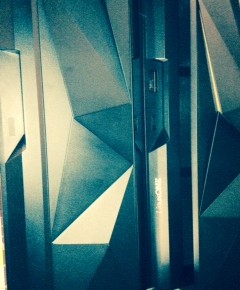Linux Distributions Expand on IBM Servers

Since unveiling its Linux mainframe servers at last summer's LinuxCon conference, IBM has been adding more open-source distributions to its LinuxOne line of z Systems-based mainframes. This week it added the latest release of Canonical's Ubuntu platform that the partners said would help ease growing hybrid cloud deployments.
Ubuntu joins a growing list of Linux distributions running on IBM z Systems and LinuxOne that includes Red Hat (NYSE: RHT) and SUSE. Along with support for LinuxOne systems, Canonical said this week its Ubuntu 16.04 release includes a "pure-container" hypervisor based on OpenStack Mitaka cloud building tools. The latest version of Mitaka released earlier this month is designed to help manage bare metal, virtual machines and container orchestration frameworks with a single set of APIs.
The Ubuntu release also includes Ceph Filesystem (CephFS) and Z File System (ZFS) support for large-scale cloud storage.
Canonical said its latest Ubuntu release also introduces a new secure application format it calls "snaps" intended to speed updates. The secure application package format is designed to further convergence across mobile devices, desktops and, ultimately, the Internet of Things, the company asserted.
The new application format can be installed alongside traditional deb formatted packages. Canonical said the two packaging formats "live quite comfortably next to one another" while allowing Ubuntu running on LinuxOne to retain its existing processes for development and updates.
Meanwhile, the container hypervisor dubbed LXD is designed to boost density by up to 14-fold, Canonical claims, while speeding Linux operations when compared to traditional virtualization. LXD is part of Linux application container project called LXC 2.0 that is serving as the basis for many platform-as-a-service deployments currently in production. Canonical is among more than 80 companies contributing to the open source container effort.
The company also claimed its new hypervisor for OpenStack would help boost workload density while reducing latency as more customers deploy hybrid cloud infrastructure. For cloud adopters, it said that feature would aid with workloads involving network function virtualization, real-time analytics, media streaming, financial transactions and other time-sensitive jobs.
Ubuntu's support for ZFS on Linux combines a volume manager and file system widely used for the platforms cloud and container operations. Version 16.04 also adds support for CephFS, a distributed file system targeting enterprise storage for cluster computing.
These and other Linux platforms are being released as IBM rolls outs its LinuxOne mainframe servers. The company introduced its entry level Rockhopper system earlier this year that emphasizes hybrid cloud support. IBM said Rockhopper targets "emerging markets" seeking performance comparable to its z13-based Linux server dubbed "Emperor".
(The names refer to two penguin species.)
The Emperor mainframe scales up to 8,000 virtual machines or thousands of application containers, IBM claimed. The Linux mainframe servers are built around a 5.6 GHz processor along with an expanded memory pool that includes four levels of cache.
Related
George Leopold has written about science and technology for more than 30 years, focusing on electronics and aerospace technology. He previously served as executive editor of Electronic Engineering Times. Leopold is the author of "Calculated Risk: The Supersonic Life and Times of Gus Grissom" (Purdue University Press, 2016).











